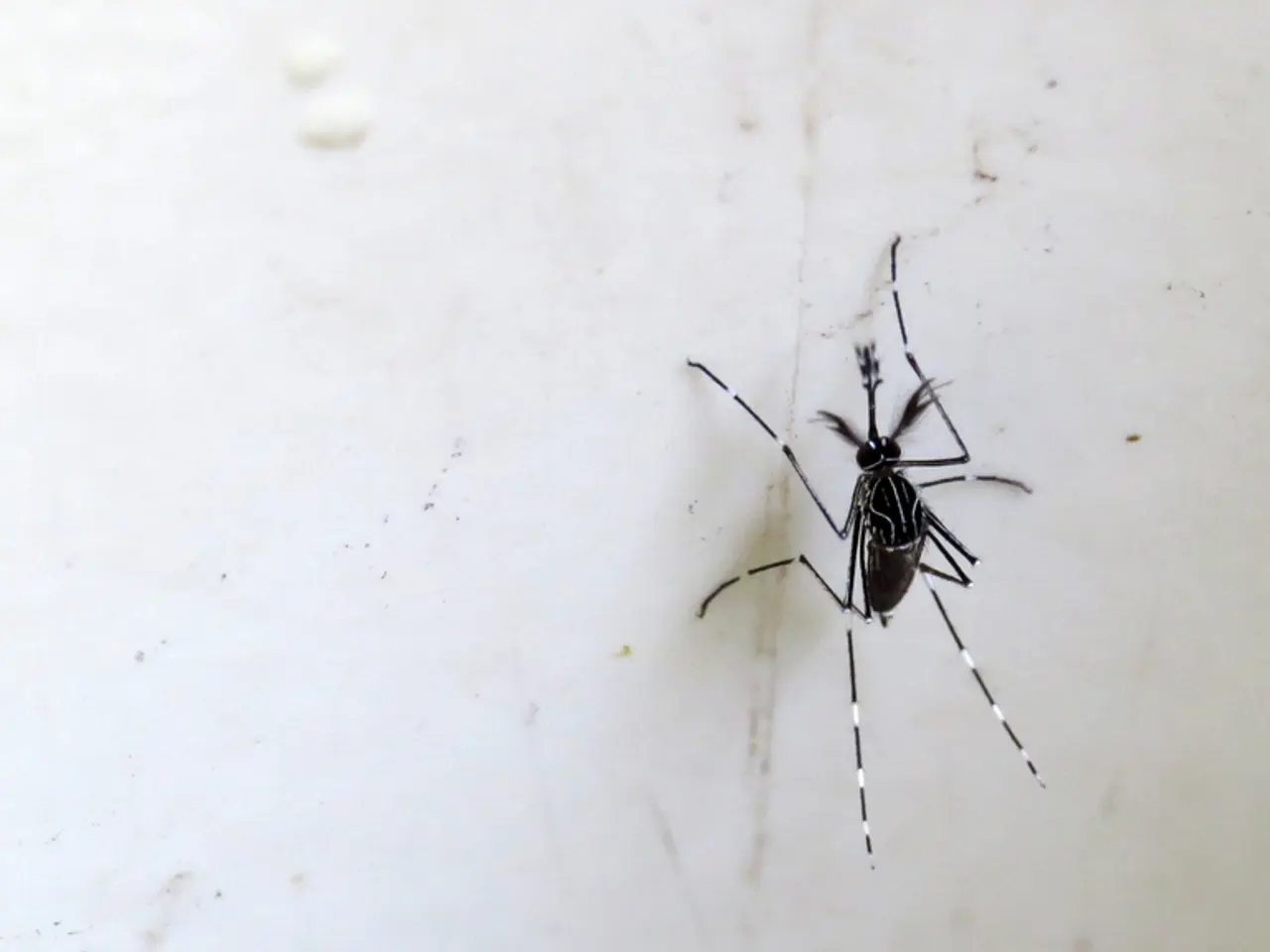West Nile Virus discovered in Kentucky for the first time; authorities advise residents to implement safety measures
First Confirmed Case of West Nile Virus in Kentucky for 2025
The Louisville Metro Department of Public Health and Wellness has announced a laboratory-confirmed case of West Nile virus in a Louisville resident, marking the first confirmed human case of 2025 in Kentucky. This development underscores the importance of taking precautions against mosquito bites to reduce the risk of infection.
According to Louisville's Chief Health Strategist Connie Mendel, West Nile virus has been present in mosquitoes for several years. To combat this, health officials recommend several prevention measures.
1. Use Insect Repellents
Apply insect repellents that contain DEET, picaridin, IR3535, or lemon eucalyptus oil when outdoors to repel mosquitoes. For longer-lasting protection, clothes can be sprayed with repellent containing permethrin or another EPA-registered repellent.
2. Wear Protective Clothing
Wear long sleeves, long pants, and socks, especially during peak mosquito biting hours at early morning and dusk. You can also treat clothing with insect repellent for added protection.
3. Eliminate Standing Water
Remove standing water from around homes, such as from flowerpots, gutters, buckets, and pet dishes, as these can be breeding sites for mosquitoes. Emptying standing water from various locations on a regular basis can help prevent mosquito breeding grounds.
4. Install Screens
Ensure windows and doors have screens to prevent mosquitoes from entering homes. Installing or repairing screens can help keep mosquitos outside.
5. Be Vigilant During Peak Hours
Be extra cautious during early morning and dusk when mosquitoes are most active. Outdoor activities during these hours should be avoided, or protective clothing and repellent should be used.
It's important to note that repellents containing permethrin should not be applied directly to the skin. They should be used according to the label instructions for optimal safety and effectiveness.
Serious illness can occur in people of any age, but people over 60 are at the greatest risk for severe disease. Less than one percent of infected people develop a serious neurologic illness such as encephalitis or meningitis. People with certain medical conditions, such as cancer, diabetes, hypertension, kidney disease, and those who have received organ transplants, are at greater risk for serious illness from West Nile.
According to the U.S. Centers for Disease Control and Prevention (CDC), most people infected with West Nile virus show no symptoms or mild symptoms. However, if you believe you have West Nile, it's crucial to contact your healthcare provider immediately.
The public is being urged to protect themselves against mosquito bites, regardless of their location. By taking these preventive measures, we can help reduce the risk of West Nile virus infection and control mosquito populations.
Between 1999 and 2024, Kentucky has had 223 confirmed human cases of West Nile. This underscores the importance of continued vigilance and adherence to prevention measures.
- Health-and-wellness measures, such as using insect repellents with DEET, picaridin, IR3535, or lemon eucalyptus oil, can help reduce the risk of West Nile virus infection.
- To combat the West Nile virus, it's recommended to wear protective clothing, including long sleeves, long pants, and socks, especially during peak mosquito biting hours.
- Fitness-and-exercise routines during early morning and dusk should be adjusted to minimize exposure to mosquitoes, as these are peak hours for mosquito activity.
- Enhancing mental-health can also play a role in disease prevention, as staying informed and following safety guidelines can help reduce anxiety and concerns about potential health risks.




